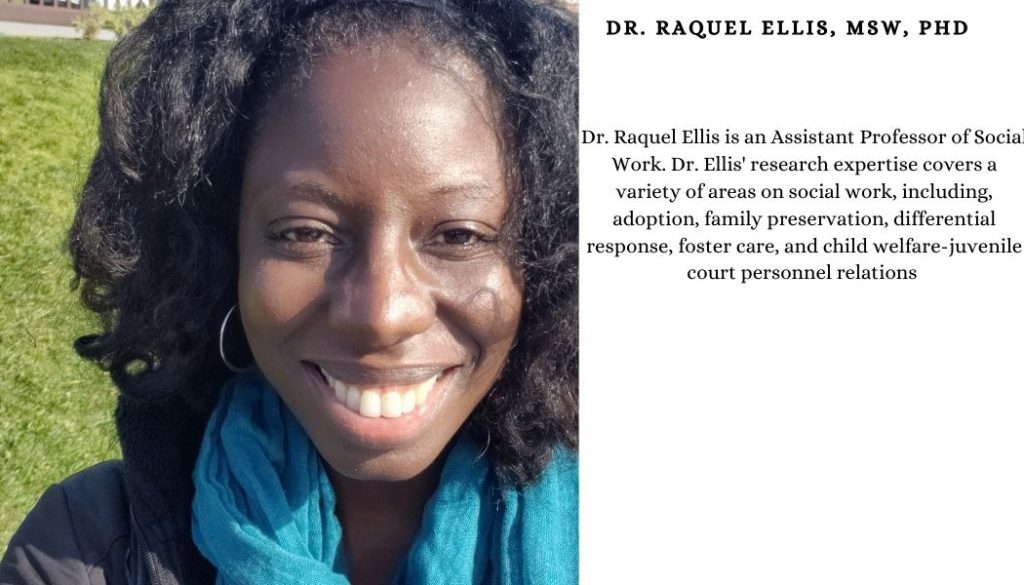Note: This is part two of a series of three. You can start here, but you might find it worthwhile to read the first post in the series!

Often when we think of social science research, we think of experiments, surveys, interviews, and maybe even some fieldwork. We think of Baby Albert, the Stanford Prison experiments, and Likert scales. I would hazard to guess that most people assume that social science must involve, well, people. But there are other researchers who study people’s creations—diaries, letters, news articles, advertisements, blogs, Instagram accounts, books, and other artifacts—to see what they tell us about the people who crafted them and to consider how they, in turn, shape the people who consume them. One method these researchers employ is content analysis, the search for patterns in recorded communication that involves identifying and categorizing themes, concepts, depictions, and even word choice within a text.
“Content analysis tells us about the creators of material and how they shape the people who consume these creations”
Since I teach children’s literature, and have several children of my own, I am particularly interested in the content analysis of children’s books. What do the stories we tell children tell us about ourselves? Who gets to tell the stories? What picture of the world do they present to children? What’s normal? What’s not? Who gets what job? What is a family like? Who speaks and who stays quiet? Is your life like the life you see in the book?
Like all research, content analysis is inherently limited—we can’t consider all the things in all the books all the time. The sample is limited. And our coding frame might miss something, or the researcher might miscode something. The measurement is limited. These are the common concerns with all empirical research. One content analysis doesn’t “prove” anything. However, it does tell us something—so here are the kinds of things researchers consider through the content analysis of children’s books and a few interesting findings.

Common Themes
One focus for content analyses is the messages and values children’s books present as important. Showalter (2016) found that best-selling picture books tend to embrace the following “virtues”: Kindness, Love, Creativity, and Vitality. But traditional virtues such as Spirituality, Humility, Self-Regulation, Forgiveness, and Mercy were rarely found. The books did, however, also embrace Vanity, Impulsivity, and Indulgence. Burton (2020) found that children’s picture books most often expressed a need to love, to be loved, and to belong.

Children’s Experiences
Other researchers look at how narratives present real-life situations. Phillips & Sturm’s (2013) study of books about kindergarten suggests that while these books accurately portray the classroom and childhood development, they lack development of child/teacher relations, racial and ethnic diversity, family involvement, and children’s quiet/alone time. A content analysis of the depiction of disabilities in Newbery Award winners from 1975-2009 found that while the depiction of characters with disabilities was generally positive, it was not proportionate to real life, in either basic population or racial diversity (Leininger et al., 2010). Other studies detail depictions of cancer (Doering, 2020; Huang et al., 2017), bullying (Oppliger & Davis, 2016;Wiseman et al., 2019), transracial adoption (Sun, 2016), religion (Raina, 2016), and other life experiences.
Factors Influencing Behavior
Researchers are also interested in how reading may equip children to navigate real-life challenges. Goloway’s (2019) analysis of fairytales from 22 different cultures found that 96% of the fairytale studied contained “multiple specific references to the three-dominant evidence-based factors” of Masten’s model of resilience. Goloway links this emphasis on resilience as a positive way to increase resilience in the child reader, especially as a protective factor for children in families impacted by substance use disorder (SUD). A study of dietary behaviors in pictures book suggests that picture books portray a variety of problematic eating behaviors of interest to social science research and psychologists; however, the problem-solving strategies used in such books do not generally line up with research-based nutrition approaches (Matvienko, 2016). So, while the books bring up real problems, they don’t offer viable solutions.

Careers & Disciplines
Another large area of interest is how picture books present adults—how are different roles and careers visualized for young readers? Are these representations diverse? Limited? Kelly’s (2018) analysis of science trade books for children considers whether this type of children’s book has improved in the diversity of depictions of scientists—spoiler, it hasn’t. The fictional scientists pictured in the award-winners were mostly white and male. Furthermore, the books mostly depicted science as life science (rather than chemistry, astronomy, etc.), giving a rather limited view of what science is really all about. Similarly, Patterson (2019) found that almost half of the children’s books on the New York Times’ best-seller list included some politically relevant content, but that the depictions of democratic leaders were most often male while monarchial leaders were most often female and less likely to actively participate in a political process in the book. In investigating these monarchial leader narratives (i.e., princess stories), Dale et al. (2016) agreed that gender stereotypes were common in the books studied: The protagonists were most often distressed, naïve, beautiful princesses who quickly fell in love. As children’s book communicate ideas about worldview, reality, and future expectations, it’s important we understand what messages they convey.
This quick overview shows the wide variety in how content analysis can be applied to children’s picture books. As we live in a world that is increasingly aware of how powerful media, including books, can be in shaping the readers’ perception of reality, I imagine this field of study will only grow. And as it does, literary concerns like characterization, setting, theme, motifs, etc., will play an important part in the critical analysis of the texts.
Click here to read the final part of this series!

References
Burton, S. C. (2011). Childhood needs and children’s literature: A content analysis of award-winning books [ProQuest Information & Learning]. In Dissertation Abstracts International Section A: Humanities and Social Sciences (Vol. 71, Issue 11–A, p. 3968).
Dale, L. P., Higgins, B. E., Pinkerton, N., Couto, M., Mansolillo, V., Weisinger, N., & Flores, M. (2016). Princess picture books: Content and messages. Journal of Research in Childhood Education,30(2), 185–199. https://doi.org/10.1080/02568543.2016.1143415
Doering, K. L. (2020). Inclusivity in children’s literature: Examining quality of text, accuracy of representation of children with cancer in picturebooks, and children’s response to three specific texts[ProQuest Information & Learning]. In Dissertation Abstracts International: Section B: The Sciences and Engineering (Vol. 81, Issue 5–B).
Goloway, S. (2018). Happily ever resilient: A content analysis of themes of resilience in fairytales [ProQuest Information &Learning]. In Dissertation Abstracts International Section A: Humanities and Social Sciences (Vol. 79, Issue 3–A(E)).
Huang, X., Lee, S., Hu, Y., Gao, H., & O’Connor, M. (2015). Talking about maternal breast cancer with young children: A content analysis of text in children’s books. Journal of Pediatric Psychology, 40(6), 609–621. https://doi.org/10.1093/jpepsy/jsu110
Kelly, L. B. (2018). An analysis of award‐winning science trade books for children: Who are the scientists, and what is science? Journal of Research in Science Teaching, 55(8), 1188–1210. https://doi.org/10.1002/tea.21447
Leininger, M., Dyches, T. T., Prater, M. A., & Heath, M. A. (2010). Newbery Award winning books 1975-2009: How do they portray disabilities? Education and Training in Autism and Developmental Disabilities, 45(4), 583–596.
Matvienko, O. (2016). Qualitative analysis of dietary behaviors in picture book fiction for 4-to 8-year-olds. Journal of Nutrition Education and Behavior, 48(9), 602–608. https://doi.org/10.1016/j.jneb.2016.06.005
Oppliger, P. A., & Davis, A. (2016). Portrayals of bullying: A content analysis of picture books for preschoolers. Early Childhood Education Journal, 44(5), 515–526. https://doi.org/10.1007/s10643-015-0734-1
Patterson, M. M. (2019). Children’s literature as a vehicle for political socialization: An examination of best-selling picture books 2012–2017. The Journal of Genetic Psychology: Research and Theory on Human Development, 180(4–5), 231–250. https://doi.org/10.1080/00221325.2019.1635077
Phillips, E. C., & Sturm, B. W. (2013). Do picture books about starting kindergarten portray the kindergarten experience in developmentally appropriate ways? Early Childhood Education Journal, 41(6), 465–475. https://doi.org/10.1007/s10643-012-0560-7
Raina, S. A. (2010). Critical content analysis of postcolonial texts: Representations of Muslims within children’s and adolescent literature [ProQuest Information & Learning]. In Dissertation Abstracts International Section A: Humanities and Social Sciences (Vol. 70, Issue 11–A, p. 4215).
Showalter, R. A. (2016). Virtue and vice in children’s literature: A content analysis of best-selling American picture books [ProQuest Information & Learning]. In Dissertation Abstracts International: Section B: The Sciences and Engineering (Vol. 76, Issue 10–B(E)).
Sun, L. (2015). Critical content analysis of adoption texts: Representations of transracial Chinese adoption within children’s picture books [ProQuest Information & Learning]. In Dissertation Abstracts International Section A: Humanities and Social Sciences (Vol. 75, Issue 12–A(E)).
Wiseman, A. M., Vehabovic, N., & Jones, J. S. (2019). Intersections of race and bullying in children’s literature: Transitions, racism, and counternarratives. Early Childhood Education Journal, 47(4), 465–474. https://doi.org/10.1007/s10643-019-00933-9








































